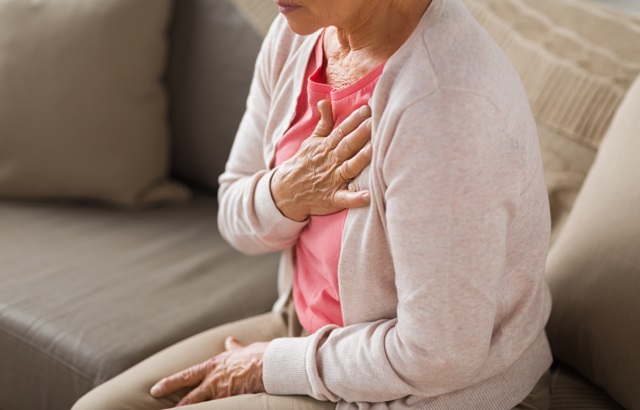

This National Heart Month, we're calling for action to raise awareness of heart attacks in women in Wales and tackle the unconscious bias and health inequalities which leave them at a disadvantage at every stage of the heart disease journey.
 The pandemic has highlighted health inequalities and the urgency of getting cardiovascular care right, and it's never been more important to ensure equitable care for women.
The pandemic has highlighted health inequalities and the urgency of getting cardiovascular care right, and it's never been more important to ensure equitable care for women. Coronary heart disease is the leading cause of heart attacks, and Wales has the second highest coronary heart disease female death rate of the UK’s four nations with around 1,300 women dying every year – double the number of deaths caused by breast cancer.
Research we funded suggests that the deaths of at least 8,000 women could have been prevented through equitable cardiac treatment over a ten-year period in England and Wales. We believe women are:
• not seen as being at risk of heart attacks
• more likely to be misdiagnosed or diagnosed slowly
• less likely to receive optimal treatment
• more likely to experience difficulties accessing cardiac rehabilitation
The problem
There are long-standing societal biases and misunderstandings which assume that women are not at risk of heart attacks.
We carried out a survey in 2021 of 1,000 people in Wales which showed that women are not seen as being at risk of heart disease by the Welsh public, with 65 per cent of people in Wales unable to identify heart disease as one of the leading causes of death for women.
Each year, around 1,700 women are admitted to hospitals in Wales due to a heart attack.
Yet our survey found that over a third of women in Wales do not feel confident in recognising the symptoms of a heart attack and only 7 per cent feel very confident.
As women are not seen by the people of Wales as being at risk of heart attacks, when they do experience the symptoms of a heart attack their symptoms might not be taken seriously by themselves or those around them.
Call for change
There are already plans to address health inequalities faced by women in England and Scotland. Gemma Roberts, our Policy and Public Affairs Manager at BHF Cymru says we'd like to see the same commitment from Welsh Government.
She comments: “Welsh Government should commit to a women’s health plan which addresses inequalities experienced by women with heart disease.
"The plan should seek to improve outcomes for women with heart disease through improved public awareness, timely diagnosis, equitable treatment and equitable access to cardiac rehabilitation."
Mandy's story

Mandy Swift, 56, from Rhyl was 51 when she had her first heart attack, but didn’t recognise the symptoms, so didn’t seek medical attention.
She says: “My whole life has changed since my heart attacks. I’ve had to give up my job and my life in Bulgaria and move back to the UK.
"I didn’t recognise the symptoms of my heart attacks and didn’t know what was happening to me. I’m now on a lot of medication; I take nine tablets each morning and six each night.
"I can no longer work because of my condition, I’m very tired a lot of the time, I feel the cold more and some days I can barely walk.
“It’s hard adjusting to my condition as I’ve always been busy and active. I had no previous heart issues and there’s no history of heart attacks in my family.
"I know I am very lucky and that it could have been a completely different experience if I delayed treatment any longer. That’s why I’m backing BHF Cymru’s call for more women to better understand their risk of a heart attack and its symptoms.”


